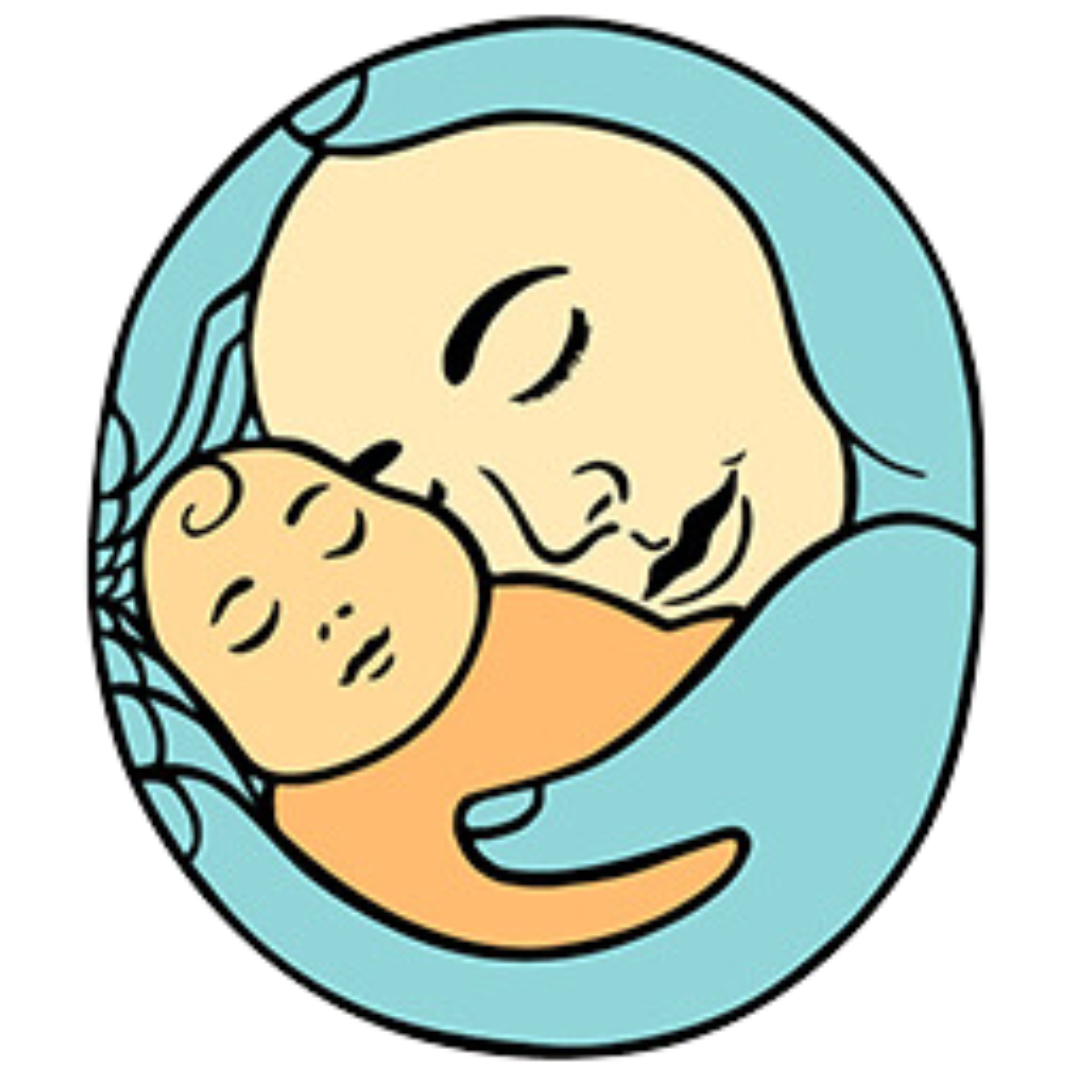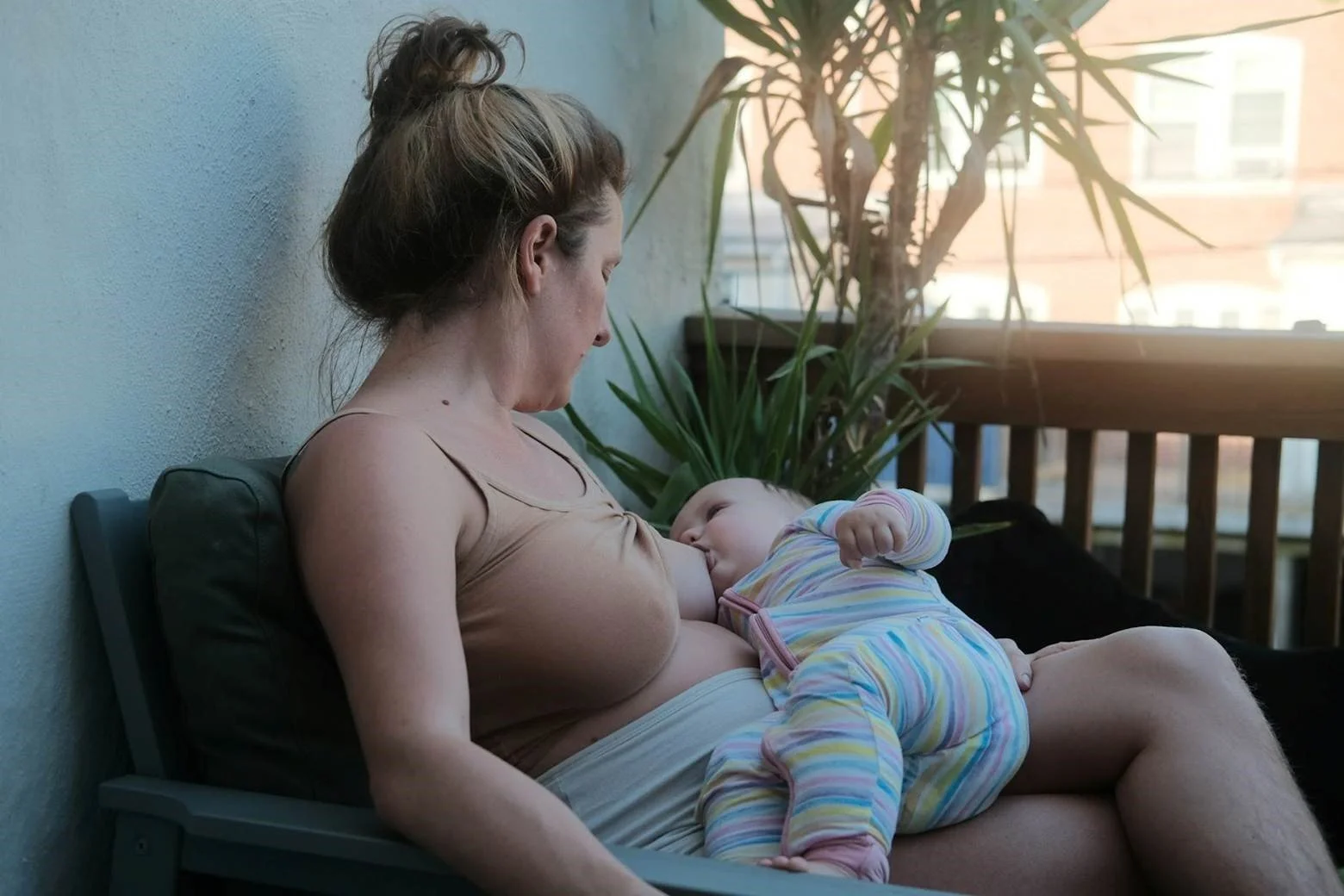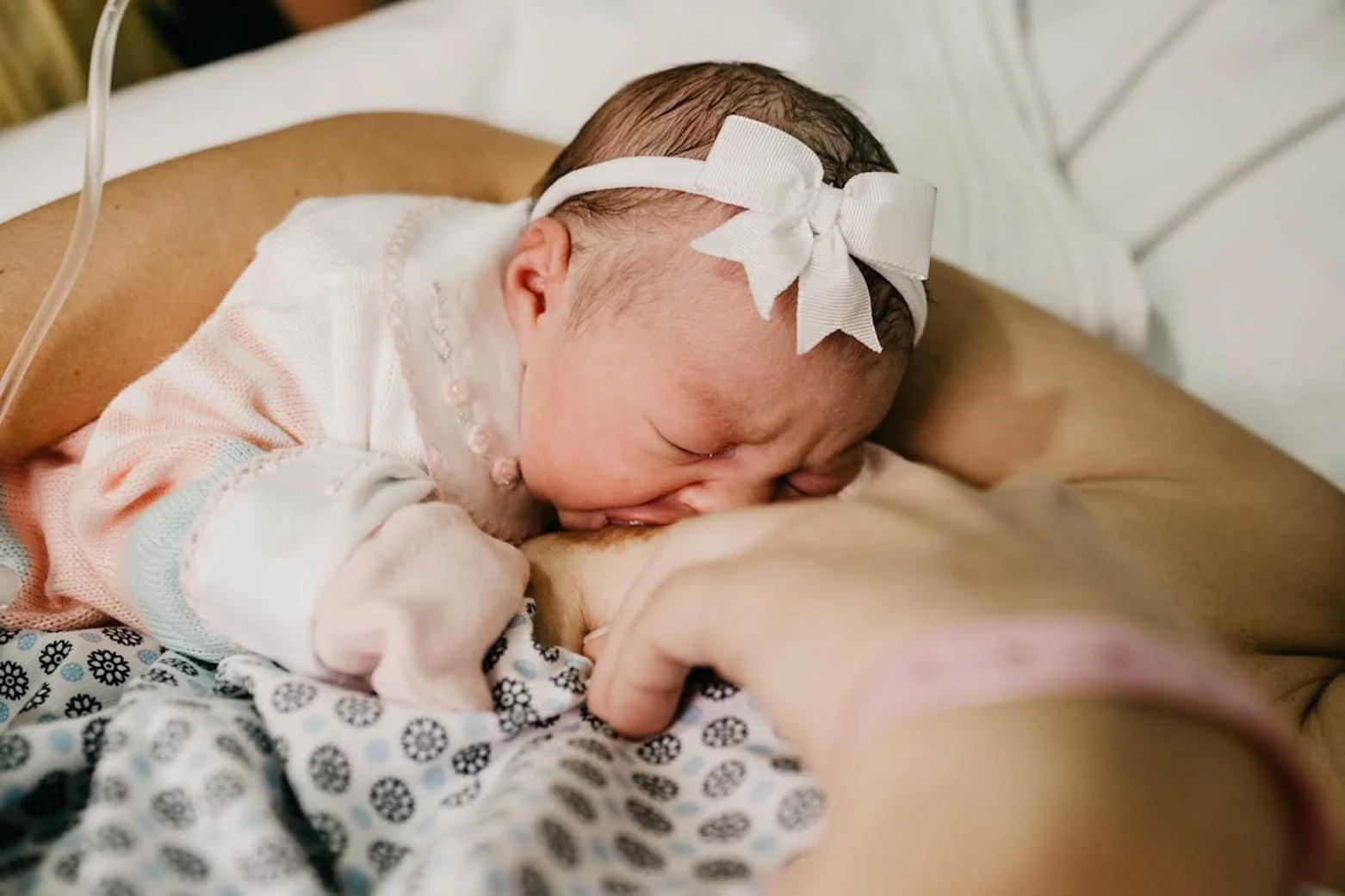What Time Is Best for Caffeine While Breastfeeding
Many parents depend on caffeine to get through long days and even longer nights. Whether it’s a morning cup of coffee or an afternoon tea, caffeine often helps parents stay awake and focused. But once a baby arrives and feeding begins, questions quickly follow.
One of the most common is, “Is caffeine safe while breastfeeding?” It’s a fair question, especially when sleep is short and the need for energy is high. Parents want to make good choices, not just for themselves but for their baby too.
To help answer this, we turn to expert guidance. Lo Nigrosh is an International Board Certified Lactation Consultant, a trained doula, and a childbirth educator. She runs Lo’s Lactation Lab, where she supports breastfeeding, chestfeeding, and pumping parents with clear, science-based advice.
In this article, you’ll learn how caffeine affects breast milk and what that means for your baby. You’ll also understand how much caffeine is safe, how to time your intake, and what signs to watch for. If you're wondering how to manage caffeine while breastfeeding, this article will guide you clearly and simply.
Is Caffeine While Breastfeeding Safe?
Many new parents turn to caffeine to handle long, sleepless days. But they often wonder how much is safe while breastfeeding. It’s important to protect the baby but also care for the parent’s needs.
Why This Matters
Parents often feel they must cut out anything that might harm their baby. This concern comes from love and care.
However, it’s also important to follow what science says, not just fear the worst. Caffeine is part of many daily routines, and the goal is to make smart, balanced choices.
Image Credits: Photo by The Lazy Artist Gallery on Pexels
Caffeine Does Pass into Breast Milk
Caffeine is a stimulant found in coffee, tea, soda, chocolate, and some medicines. When a breastfeeding parent drinks caffeine, a small amount moves into the milk.
This fact may sound worrying, but it doesn’t mean it’s unsafe. The real key is to know how caffeine works in both the parent’s and baby’s body.
Understanding the Metabolism of Caffeine While Breastfeeding
Caffeine breaks down at different rates in adults and babies. Age also plays a role here:
Newborns break down caffeine slowly.
Older babies process it faster.
This matters because slow metabolism means caffeine stays in the baby’s system longer. Experts often look at the half-life to understand this. Half-life means the time it takes for the body to cut a substance’s level in half.
In adults, caffeine’s half-life is about 4.9 hours. For newborns, it can be much longer, which raises the chance of buildup if too much caffeine is consumed.
Does Caffeine While Breastfeeding Reach the Baby?
Caffeine affects babies based on their age. Knowing this helps parents make better choices about what they drink.
How Caffeine Breaks Down by Age
The time it takes for caffeine to leave the body depends on the baby’s age.
Newborns: Half-life is about 97.5 hours, so caffeine stays in their system for days.
Three to five months: Half-life drops to 14 hours.
Six months and older: Half-life shortens to around 2.6 hours.
This wide range shows why younger babies process caffeine much more slowly than older ones.
Image Credits: : Photo by Wren Meinberg on Unsplash
How Much Caffeine Reaches the Baby?
After a parent drinks caffeine, it peaks in the blood within one to two hours. As the body makes breast milk, a small part of that caffeine moves into it. However, only about 6 to 10 percent of the parent’s caffeine reaches the baby.
This small amount means most parents can enjoy drinks like coffee or tea without much worry. The baby usually gets such a tiny dose that it rarely causes problems.
Daily Caffeine Recommendations
Most experts suggest breastfeeding parents stay near 500 mg of caffeine per day. However, some babies may be more sensitive, so the safe range can go from 300 to 750 mg.
For comparison, during pregnancy, most recommend no more than 300 mg daily. Some even suggest staying closer to 150 mg.
Common Caffeine Amounts
Here’s a simple guide to how much caffeine is in popular drinks:
Starbucks short coffee: 250 mg
Starbucks tall coffee: 375 mg
Starbucks grande coffee: 500 mg
Cappuccino or latte: 70 mg
Home-brewed coffee: 120–180 mg
12 oz soda: 20–60 mg
8 oz tea: 30–50 mg
Most parents can enjoy these drinks and still safely feed their baby
Signs of Excess Caffeine While Breastfeeding
While caffeine is often safe, some babies may react to even small amounts. Knowing the signs helps parents act early.
How to Keep Track of Caffeine
Most home-brewed coffee gives you 3 to 5 cups’ worth of caffeine before hitting the daily limit. A single large Starbucks coffee can already meet that value. Thankfully, drink labels show caffeine amounts, helping you keep track with ease.
You can usually enjoy your coffee or tea without concern. However, it’s smart to know when to pause and pay closer attention.
Image Credits: Photo by Kristina Paukshtite on Pexels
Signs Your Baby May Be Sensitive
Each baby reacts differently. Even when you stay under the recommended limit, your baby may still show signs of sensitivity.
Look out for these signs:
Fussiness or extra irritability
Poor sleep or waking up often
Restlessness or jittery behavior
A faster heart rate than normal
If you spot these signs, caffeine may be the reason.
What You Can Do Next
If you suspect caffeine is affecting your baby, try switching to non-caffeinated drinks. This step is especially important for babies born early or those with medical needs, as they often handle caffeine more slowly.
It’s important to give things time. It can take up to a week for caffeine to fully leave a baby’s system. So, if you cut back, be patient and watch for improvements over several days.
Moreover, if symptoms remain or you feel unsure, reach out to your healthcare provider. They can help you decide on the best approach to keep both you and your baby healthy.
How Can You Manage Caffeine While Breastfeeding?
If you worry about caffeine, a few simple steps can help you manage it with confidence.
Smart Timing Around Feedings
Try to drink your coffee or tea right after you finish nursing. If your baby won’t feed again for an hour or two, caffeine levels in your blood and milk will already start to drop.
Remember, caffeine doesn’t stay stored in breast milk. When caffeine drops in your blood, it drops in your milk as well. This works the same way as alcohol.
Image Credits: Photo by Jonathan Borba on Pexels
Tips to Reduce Intake Without Cutting It Out
You don’t have to give up caffeine to care for your baby. Small changes can help. You can switch to lower-caffeine drinks. Many coffee shop menus or websites list caffeine levels, making it easy to check.
Staying hydrated also helps because drinking enough water supports your body in clearing caffeine faster.
Another smart move is to spread out your caffeine intake instead of drinking large amounts all at once. These steps let you enjoy your favorite drinks while keeping things safe and balanced.
Myths About Caffeine While Breastfeeding
Many people believe caffeine dries up milk, but research says otherwise. Studies show no drop in milk supply caused by caffeine. However, if a baby reacts to caffeine, they might:
Feed less often
Seem fussy or unsettled
Gain weight more slowly
These issues happen because the baby feeds less, not because the parent has less milk. Also, “pumping and dumping” doesn’t lower caffeine in milk.
The better way is simply to wait. Once your caffeine level falls, the amount in your milk drops too. With good timing and small swaps, you can still enjoy coffee or tea and care for your baby’s needs.
Conclusion
Caffeine while breastfeeding can be safe if you use it with care. Most parents can enjoy coffee, tea, or chocolate without harming their baby. The amount of caffeine that reaches the baby is small, especially if you stay within the daily limit.
It helps to drink caffeine right after feeding and give your body time to process it. You can also try lower-caffeine drinks and spread out your intake through the day.
Watch your baby for signs like fussiness, poor sleep, or restlessness. If you see any of these, try cutting back for a few days. Some babies are more sensitive, especially if they were born early. If symptoms continue, speak with your healthcare provider for support.
There is no proof that caffeine reduces milk supply. What matters most is how your baby feeds. If they feed less, they may gain weight slowly, but this does not mean you make less milk.
You do not need to give up caffeine unless it clearly causes a problem. With small changes and smart timing, you can enjoy your favorite drinks and care for your baby.
Trust your judgment, stay informed, and adjust when needed. Your well-being matters too, and finding balance makes a real difference.
FAQs
Can I drink energy drinks with caffeine while breastfeeding?
Energy drinks often contain high caffeine and other stimulants. It's better to avoid them or read labels carefully before drinking.
Does decaf coffee still contain caffeine while breastfeeding?
Yes, decaf still has small amounts of caffeine. It’s a lower-risk option, but not completely caffeine-free.
Can caffeine affect my baby’s poop or digestion?
Caffeine doesn’t usually change digestion, but if your baby seems upset or gassy, try reducing caffeine and see if it helps.
Is green tea safe in terms of caffeine while breastfeeding?
Green tea has less caffeine than coffee. You can drink it in moderation while breastfeeding, but still watch your intake.
Can I take caffeine pills while breastfeeding?
It’s best to avoid caffeine pills. They contain high doses, which can raise your baby’s exposure too quickly.




